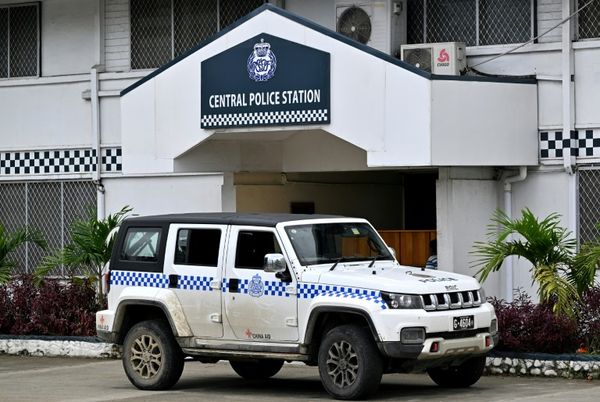
Terence Mills writes: James Ley’s article “Sanitising Roald Dahl’s words treats readers like fools” made me think of Winston Smith who in Orwell’s Nineteen Eighty-Four was employed to sanitise history as instructed by the government.
We should never interfere with an author’s work. As with The Merchant of Venice, an explanatory note at the beginning can explain how different things were viewed at different times. Or go right ahead and publish two versions — the original and an abridged one — but don’t interfere with the original.
Jenny Darling writes: At last someone has pointed out the commercial imperatives behind this move, the real story that mainstream media has for the most part ignored.
It is very unusual for a dead author’s work to be rewritten. But 70 years of copyright ownership after the author’s death is probably highly motivating for those in charge of said copyrights. In the future, we may see more of this sort of maximising of commercial options.
Whatever happened to imagination? Soon we shall all be drowning in this profit-driven, shallow culture.
Kent Wood writes: James Ley has an interesting take on the social/moral editorial adjustments being made to Roald Dahl’s work. The Brothers Grimm fairy tales were written during a time when public executions were common and popular. Sudden and violent death is integral to their work. What was once considered stock-standard children’s literature has faded into obscurity. Let the lesson be learnt.
One of the main benefits of literature is that it can reflect the time the author is/was living in. Most importantly, the written word is meant to provide a thoughtful and considered exposé of any or all of the author’s life experience, personality, psychological state and way of living.
Modifying, editing, changing someone else’s written word is nothing new. Academics use the term “revisionist” to describe historical records that have been adjusted, as it were, to make them easier to understand or accept in today’s world. Universities place a higher value on “primary” research — that which relies on “original” sources alone. Language is also constantly changing, and understanding is valuable only to the point of clarity. The King James version of the Christian Bible has purportedly been completely rewritten at least 14 times — to the point of creating some doubt as to what the original text actually contained.
The changes being made to Dahl’s works are driven by the human ego — and our ever-present perception of superiority over both those who live beside us and those who came before us.
Mark Hills writes: Dahl’s texts should be preserved as written. Living authors are free to update their books for whatever reasons. Dahl would probably have fun ridiculing inclusive changes to his works. As James Ley says, you do not have to like or approve of a work to read and criticise it appreciatively.
Public interest or public voyeurism
Rob Sheehan writes: The Press Council absolutely should pursue the leaking of Brittany Higgins’ diary entries (“Was it ethical of News Corp to publish Brittany Higgins’ diary?”). There’s a difference between the public interest and public interest in something.
It’s in the public interest to know how it came to be that material provided freely to police to investigate an alleged crime, and which was never tendered in evidence at trial, ended up in the hands of a journalist. Some members of the public might be interested in what’s in Brittany Higgins’ diary, but that’s got zip to do with the public interest.
The dangers here are manifold. For example:
- What safeguards can now be assumed to apply to any material provided to support police investigations of any kind?
- Does this instance of a leak undermine public confidence in trusting the police to investigate allegations fairly and without prejudice?
I think there is a right to know, in the public interest, how this private material came to grace The Australian’s pages. If the Australian Press Council does not have the power to investigate this, can I ask which public agency does have such powers?
Ode to poetry
Beryce Nelson writes: Guy Rundle is 100% wrong (“Why a poet laureate is a terrible idea”). Australia has an extraordinary history of great poetry and great poets. It’s a brilliant new strategy and is only one part of a long overdue arts revival in this country after years of deliberate and callous neglect.
Losing its Voice
John Clark writes: Our Indigenous peoples have received lots of assistance in the past, but still need more (“Four amendments to the Voice referendum proposal could fix its hubris”). Not all, of course, because some are very successful. Those who aren’t need our support. The vote for the Voice in its present format does not give any confidence that this will occur. These four changes to the constitution give some hope of assistance being provided in the right places.
Dr Ivan Dainis writes: While Prime Minister Anthony Albanese prevaricates on the detail of the Voice, any trust he believes the populace has in his government is disappearing. Any suspicion he has done a deal with the Uluru proponents — and especially on co-sovereignty — can only be dispelled by full information on this aspect. Has he promised co-sovereignty or not? If not, why plead for the unusual opportunity to settle detail after the referendum? If he has, his promises of greater government transparency and honesty are obviously false.
The PM can’t have it both ways. The electorate demands honesty above all, otherwise the referendum is an obscene waste of public money.
Neil Jonasson writes: It will not work. You should understand that all the work done on the Voice before Albanese has been hijacked and warped upside down. The Langton/Calma committee was never tasked to develop a body to be given constitutional powers. Its 2021 final report merely notes the level of interest expressed by others in constructional recognition in lieu of legislation of an advisory body.
Tony Abbott only ever supported recognition in the preamble to the constitution, and he still does it seems, according to the No campaign. It was Albanese who produced the first draft words for a constitutional amendment that omits the word “advisory” and at the same time uses deceptive wording that hides that the Voice could speak with authority on any matter before the Parliament and cabinet, not just Aboriginal peoples, as everything affects all Australians equally.
The Langton/Calma report recommended that the Voice to Parliament give advice only on matters that exclusively and significantly affect Aboriginal and Torres Strait Islander peoples. Once again, the words “exclusively and significantly” are still being omitted from the government’s working group’s latest draft. According to the statement this week by the co-chair of the constitutional working group, all these omissions and deceptions are quite deliberate so as to give the unelected Voice executive powers, backed by the constitution, over the elected Parliament and cabinet. That is what they want: “power”.
Barry Jones writes: The answer is quite simple: the government should be listening to Warren Mundine.
Susan Hartley writes: I support the changes proposed to the wording of the referendum as suggested in this article, but it won’t change the underlying problem: there has never been a single polity in Aboriginal culture. It’s a well-understood cultural norm that a person can speak only for their own skin, clan or affiliation to a family or specific totem or “dreaming”. There never has been, and probably never will be, a single “voice”.
There are huge issues that are general to most Aboriginal peoples, particularly remote rural communities: poor living conditions; lack of access to meaningful work and appropriate education that fits with their learning styles; lack of access, at an affordable cost, for fresh food; safe communities, for especially women and children — I could go on.
Having lived in Aboriginal communities in remote parts of the Kimberley, I have seen how the lives of many are blighted by poor, ineffective decision-making, often by bureaucracies far removed from where they live, even if those bureaucrats identify as Aboriginal. Traditional Aboriginal society is a patriarchal gerontocracy and in many respects still is. How will this Voice give voice to the voiceless who are increasingly frustrated and powerless against this entrenched bias? Aboriginal communities do not have democratic polities, which is one reason the young, males in particular, are rebelling — caught as they are between two opposed sets of values.
Frankly, I can only see this change, if it succeeds, being worse than useless.
Ian Watson writes: As was shown in the failed republic referendum in 1999, the more people discover the details, the less likely they are to vote Yes.
Steve Brennan writes: It seems Albanese has walked into a minefield with the Voice — a noble and worthy cause long overdue. From what I’m seeing, not to put too fine a point on it, the collective position of Indigenous peoples is not consistent and the result is that Albanese had been thrown under a bus.
I refer to dissenting Indigenous representatives, such as Senator Lidia Thorpe and others, about the Voice to Parliament. It’s not surprising Albanese is stumbling in trying to articulate a unified front on behalf of Aboriginal and Torres Strait Islander peoples. The perception I have now is some Indigenous groups want treaty first. As a white man, I want to give them what they want, but now am confused.
As far as referendums go, this doesn’t bode well. The No camp will be rejoicing.
Mustn’t grumble
Deb Campbell writes: I am a Yes activist, am 65 and live in regional Victoria in the federal seat of Wannon and the state seat of Polwarth (“The young and the restless: a new Australia flexes its muscle on the Voice”). Both electorates are for the moment held by Liberal MPs but both are now on 2%-ish margins after strong campaigns by Alex Dyson (federal community independent) and Hutch Hussein (Labor) in 2022.
I was an active supporter of both these campaigns — as were many of my age cohort in surrounding communities. Many are also Greens voters. I get the excitement — which I hope is correct — about the changing demographic face of Australia, but I mostly feel totally unseen by pollsters who declare me to be:
- old (true) and
- grumpy (yes but about different things than those I am accused of) and
- frightened of change (no).
There is a very active segment of my age group that totally supports change and we are getting pretty sick of being lumped in with the negative grumps who apparently exist among us. Well, mate, I am sure they are out there but I do not know them. In Wannon, for example, many of the volunteers who supported the Dyson campaign very actively were in the older age groups, and judging by recent conversations many of those same people will be voting Yes.
For those more statistically literate than me, could a breakdown just by education, not age, be done? I wonder whether education levels may indeed prove to be a key factor?
As Crikey notes:
It’s not just age. Plenty of over-50 Australians have embraced the new Australia (perhaps some of them Crikey readers). And there are pockets of under-50s who reach for the comfort of the old. But through education, migration and urbanisation, new Australia has reached the critical mass that turns its cultural dominance into political majorities.
Please don’t forget that many of us in the 65+ group were teenagers and young adults in 1972 and embraced the Whitlam era fully — in fact some of us were shaped by it even more perhaps as those born in 1972 could have been: we saw and felt that change. We experienced the very real excitement it brought with it.
For me the Voice brings the very same sense of the potential to move forward: to acknowledge the realities and to try for something better.
Spinning a yarn
Ben Marshall writes: Dennis Atkins’ attack on Greens echoes the spin and PR of Labor, the LNP and News Corp — a restated “letting the perfect be the enemy of the good”, etc (“Greens need to let go of Trump-like populism. Like him, it’s past its use-by date”).
Atkins uses an army of straw men (e.g. voters didn’t just vote for action on climate), engages in whataboutism (e.g. Greens are siding with the Coalition to deny socially disadvantaged), and a series of thinly veiled sneers (e.g. the “luxury” of caring about climate), and repeating myths (e.g. the Greens stopped action on climate back in 2009!).
Tellingly, nowhere does Atkins address any of the issues the Greens are wearily raising, but dismisses them as “populist”, condemning them as “unrealistic, absolutist” for restating the current science (also not mentioned), and comparing them to Donald Trump.
I question the editor’s decision to run such a poorly constructed piece of spin.
If you’re pleased, peed off or piqued, get it off your chest by writing to letters@crikey.com.au. Please include your full name to be considered for publication. We reserve the right to edit for length and clarity.







